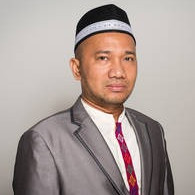Mansoor Limba
Biography Narrative
Dr. Mansoor L. Limba is Associate Professor of political science and international and Islamic studies at Ateneo de Davao University in Davao City, Philippines, and a Research Fellow at the Al-Qalam Institute for Islamic Identities and Dialogue in Southeast Asia. He obtained his bachelor’s degree in Islamic studies and Islamic history magna cum laude in 1994 and another degree in international relations from Mindanao State University, Marawi City, Philippines in 1996. He holds a master’s degree in international relations from Shahid Beheshti University, Tehran, Iran, and a doctoral degree in international relations from the University of Tehran, Iran. Apart from teaching, he translates from Persian into English and Filipino, writes, edits, and blogs and has dozens of written and translated works to his credit on international politics, history, political philosophy, Islamic finance, jurisprudence (fiqh), theology (‘ilm al-kalam), Qur’anic sciences and exegesis (tafsir), hadith, ethics and mysticism (‘irfan).
Apart from directing an educational and research institute advocating peace and development in Bangsamoro Autonomous Region in the Philippines, he has been writing, lecturing and facilitating dialogues in international, national and local academic venues and universities on interreligious, intrareligious, and intercultural dialogues. It is his personal conviction that dialoguing with members of other faiths and cultural traditions is an integral part of his Islamic faith.
Interreligious Activities and Initiatives
INTERRELIGIOUS DIALOGUE TRAINING FOR YOUNG MUSLIMS

